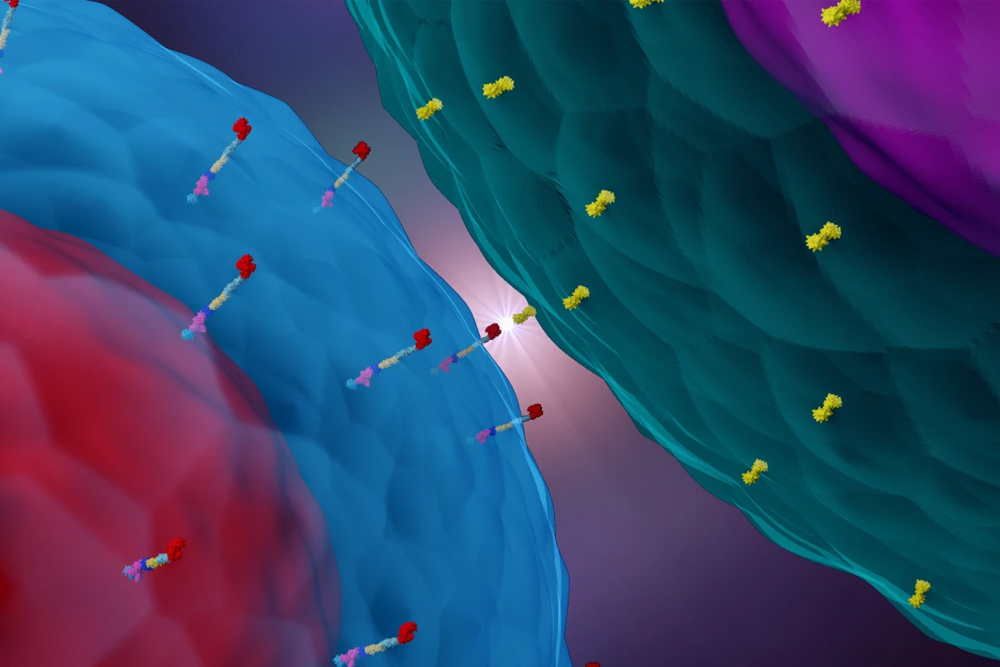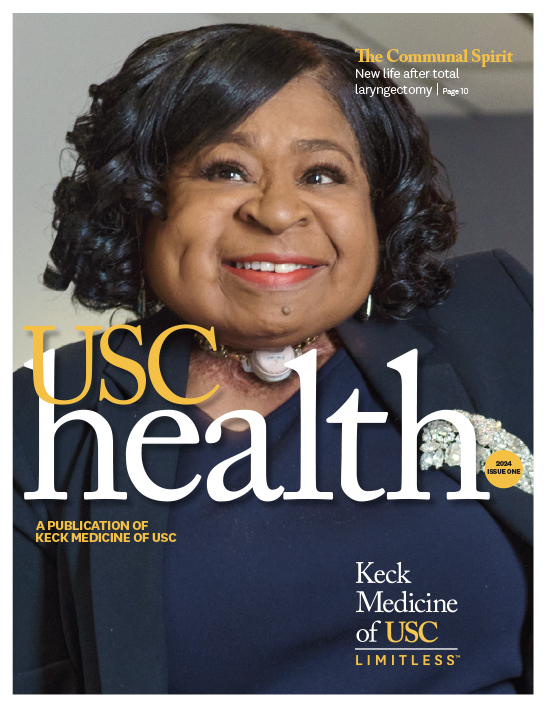
Adapted from an existing treatment harnessing the body’s immune system, the discovery could unlock a potential next-generation cell therapy.
A USC Norris Comprehensive Cancer Center research team has developed an innovative treatment for prostate cancer, a disease that affects 1 in 8 men.
Known as synthetic immune receptor (or SIR-T) therapy, the new technology is adapted from chimeric antigen receptor (CAR-T) therapy, which has proven effective for several types of blood cancer — including leukemia and lymphoma.
“We have a homegrown USC technology that shows a lot of promise,” says principal investigator Preet M. Chaudhary, MD, PhD, director of the Blood and Marrow Transplant and Cell Therapy program at USC Norris and chief of the Jane Anne Nohl Division of Hematology and Center for Blood Diseases at the Keck School of Medicine of USC.
In CAR-T therapy, a patient’s T-cells, which are part of the body’s immune response, are extracted and genetically engineered. Once reinjected, the modified T-cells can seek out, bind to and kill cancer cells.
But CAR-T therapy has not been effective against solid tumor cancers, such as prostate, breast, brain, gastrointestinal, skin and lung cancer.
New approach to fighting prostate cancer
SIR-T therapy uses different receptors that more closely resemble the body’s natural T-cells.
Dr. Chaudhary and his team tested thousands of prototypes over an eight-year period to develop receptors that can safely attack solid tumors, including prostate cancer.
Initial tests in mice yielded promising results. In May, the California Institute for Regenerative Medicine — a publicly funded state initiative for stem cell research — awarded Dr. Chaudhary $5.8 million to conduct preclinical studies.
This could lead to applying for Food and Drug Administration approval to begin clinical trials of SIR-T therapy in humans.
Dr. Chaudhary’s lab has also received grants from the U.S. Department of Defense to study SIR-T therapy’s effectiveness against melanoma, kidney cancer, lymphoma and a different molecule involved in prostate cancer.
Topics


